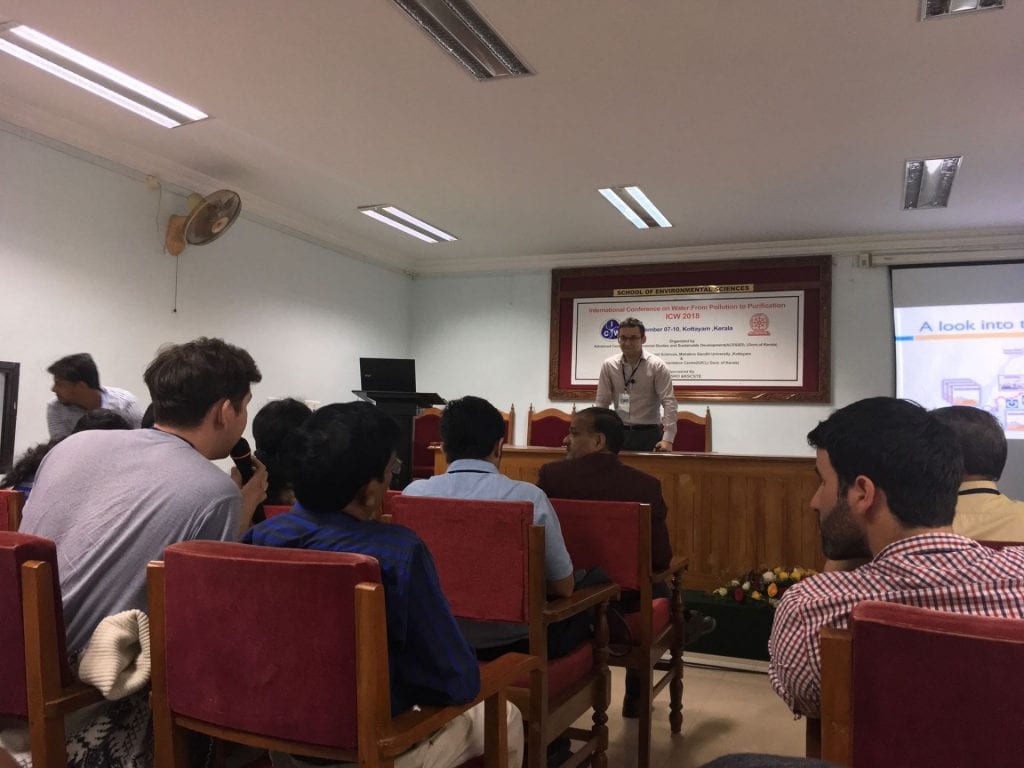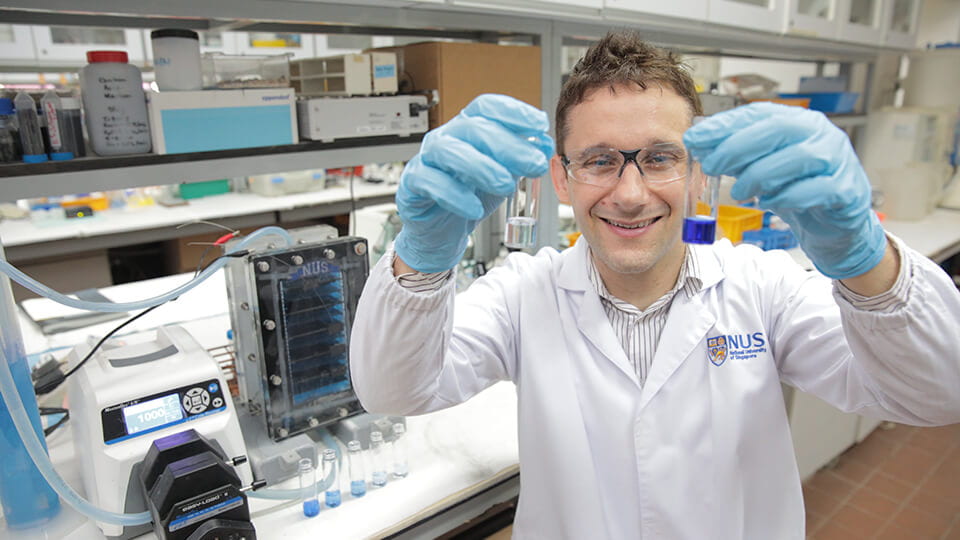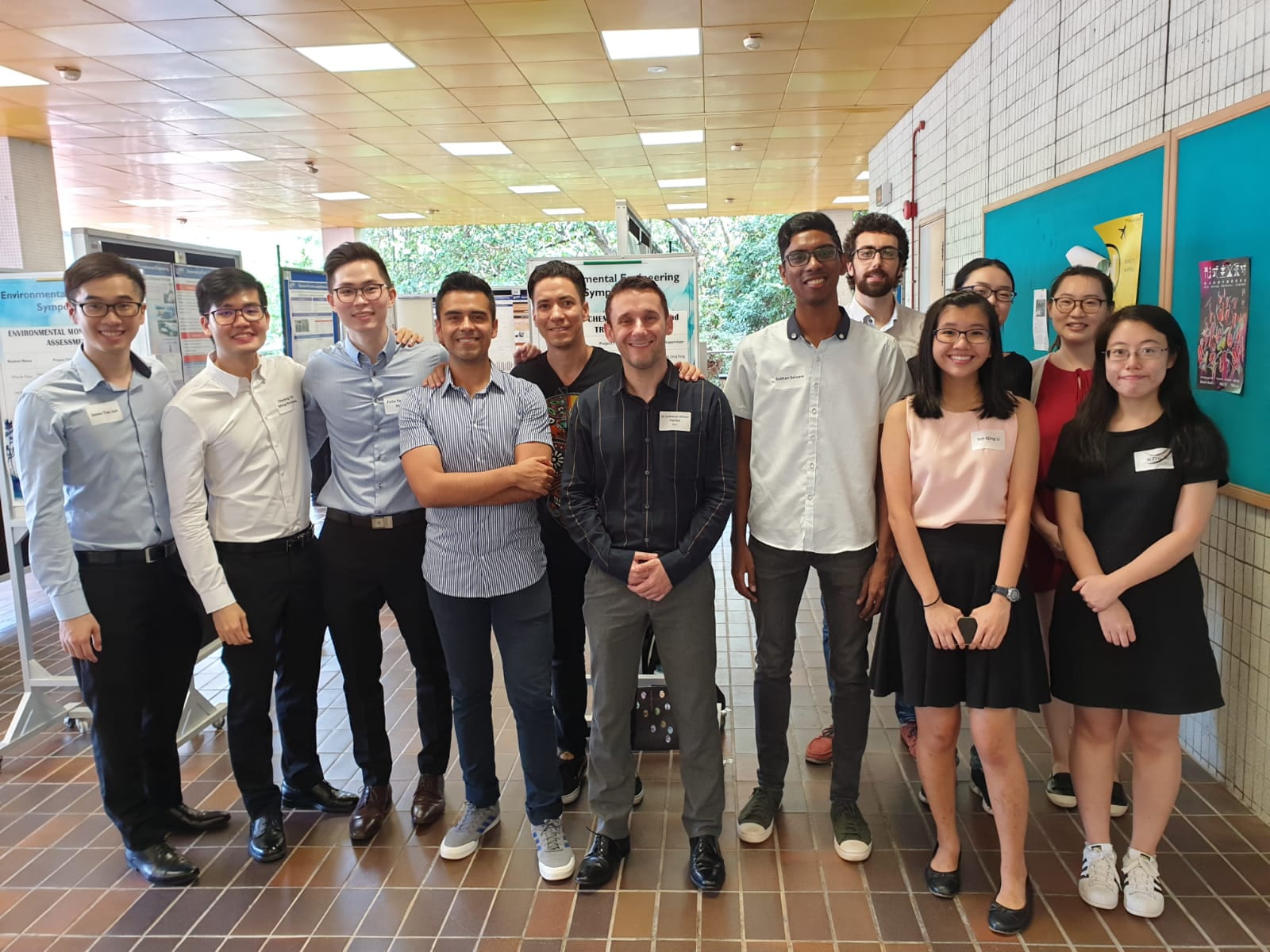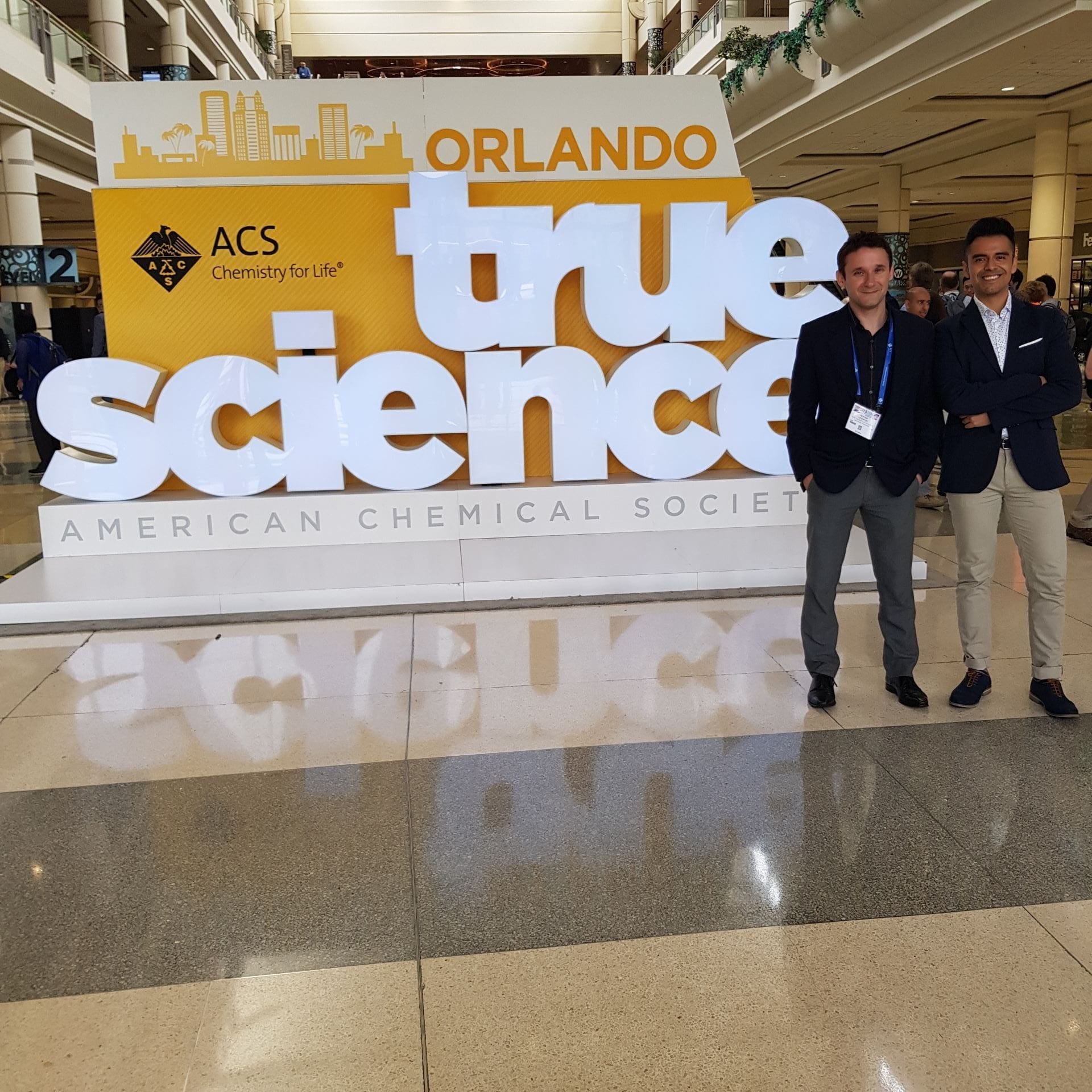Today we say goodbye to Dr. Xiaogan Wu of Yangtze University. During the past year, Dr. Wu was working in our laboratory developing anode materials to carry out the anodic oxidation of recalcitrant compounds in wastewater, obtaining many interesting results, which will be published soon. All members of EWAT group wish him all the success in his future endeavors, hoping to have more successful collaborations in the future.
Electrochemical Water Treatment Group
Department of Civil a Environmental Engineering - National University of Singapore
Page 2 of 3
“Another project known as EWat by Dr Olivier Lefebvre, won the IES Prestigious Engineering Achievement Award 2019 at the World Engineers Summit in August. Targeting hard-to-treat industrial water, it is able to remove up to 99 per cent of impurities without producing any secondary waste, said Dr Lefebvre who has worked with industries such as chemical, electronics and farms, which produce very challenging wastewaters and sludge.
With emerging contaminants such as pharmaceuticals, pesticides and residues from a wide range of personal care and common everyday products finding their way into our water these days, Prof Hu and her team are also paying a lot of attention to this area of treatment. Working with French researchers, they have successfully turned biomass such as cut tree branches and leaves into activated carbon for removing emerging contaminants. They have also developed a novel ultraviolet advanced oxidation process (UV-AOP) to generate highly efficient oxidants for breaking down emerging organic contaminants. A pilot-testing system is in the works to further test and evaluate its long term performance.”
Full and original article at:
As every summer, EWAT group is happy to receive abroad students. This time Huong Dang (Arizona State University, USA), Zharfa Nurrachma (University of Illinois Urbana-Champaign, USA) and Rishikesh Veer (BITS Pilani University, India) realized a summer internship with our research group. We hope everyone enjoyed their stay in the beautiful red dot and return to your universities with a little more knowledge. Bon voyage, have a safe trip back home!
The school year comes to an end and with it a new batch of students graduate. EWAT group wishes the best to our students in environmental engineering who during the last 12 months were involved in projects regarding the treatment of industrial wastewater by electrochemical advanced oxidation processes, hoping all of them contribute to a better world and have a successful career in this new stage of their lives. Jiayou!
The 257th ACS National meeting was held in Orlando, Florida, from March 31 to April 4. This year more than 14,000 of chemical professionals attended. EWAT group was represented by Asst. Prof. Olivier Lefebvre and Dr. Hugo Olvera, who showed some of our latest research results with the oral presentations: “FTO-TiO2 photoelectrocatalytic degradation of triphenyltin chloride coupled to photoelectro-Fenton”, “Synthesis of a graphene-coated cathode for the electro-Fenton treatment of TMDD” and “Innovative 3D printed materials for electrochemical wastewater treatment”
The versatility of electrochemical technologies makes it possible to treat a wide variety of effluents that can not be handled by conventional methods. The new publication of EWAT group by Dr. Hugo Olvera-Vargas et alii, combines two electrochemical processes to achieve an efficient treatment of anaerobic sludge. If you are interested in more information click on the following link to read the paper (https://www.sciencedirect.com/science/article/abs/pii/S004313541930137X ) or contact us. Bravo Hugo!
Once a year, EWAT group gives a lecture in electrochemistry to undergraduate students from the faculty of Civil and Environmental Engineering at NUS.
The best way to explain electrochemistry is carrying out simple experiments during the lecture. Here, we are showing the electrolysis of water in a solution containing phenolphthalein (an indicator sensitive to pH changes). During the electrolysis of water we generate oxygen and hydrogen, can you guess what else is being generated?
The answer is: -OH and H+, causing a local change of pH in the vicinity of the electrodes, which develops a pink coloration.
If you want to do the experiment at home, you only need:
- a battery
- 2 pencils
- salt (1 spoon)
- pH indicator (few drops, get it at any aquarium shop)
Mix the salt and pH indicator in water, connect each pencil to the negative and positive terminal of the battery, immerse them in the water solution, done! electrolysis in action!
Congratulations to Dr. Hugo Olvera Vargas and co-autors for the first EWAT group publication of 2019.

One of the limitations of electro-Fenton process is the need of an acid pH. In this work, the electrochemical treatment of pharmaceutical compounds was assessed at near-neutral pH using the inorganic ligand triphosphate (TPP). If you want to know more about it download the paper at: https://onlinelibrary.wiley.com/doi/abs/10.1002/celc.201801732
or send us a message.
May this be first paper of many through the year, amen!
The EWAT group participated in the International Conference on Wastewater 2018, held in Kottayam, India. Assist. Prof. Olivier Lefebvre, showed the research that is currently taking place in our laboratory, where electrochemical technologies are the main topic.

Assist. Prof. Olivier Lefebvre during his oral presentation.
© 2024 Electrochemical Water Treatment Group
Theme by Anders Noren — Up ↑











